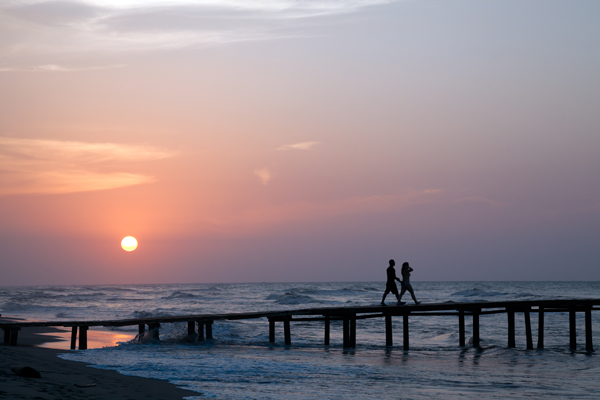Retire in La Ceiba Guide
Summary: If La Ceiba is on your retirement radar, our detailed Retire in La Ceiba Guide is your go-to resource. Delve into the crucial aspects of life here, including living costs, climate, housing options, healthcare services, and residency procedures. We also explore the city's social dynamics, volunteering scenes, transportation, and how walkable its neighborhoods are.

La Ceiba is a hidden gem for international retirees seeking a tranquil and affordable lifestyle. Nestled between the Caribbean Sea and the lush mountains of Pico Bonito National Park, this vibrant city offers a unique blend of natural beauty, cultural richness, and a welcoming community. However, like any other destination, retiring in La Ceiba comes with its own set of rewards and challenges.
Cost of Living
One of the main attractions for retirees in La Ceiba is the low cost of living. A comfortable lifestyle can be maintained on a budget of around $1,500 per month, including rent, utilities, groceries, and entertainment. Rent for a two-bedroom apartment in a nice neighborhood can range from $300 to $500 per month. Dining out is also affordable, with a meal at a local restaurant costing around $5 to $10.
Climate
La Ceiba boasts a tropical rainforest climate, with warm temperatures throughout the year. The average temperature ranges from 75°F to 85°F. The city experiences a rainy season from September to February, but even during this period, the sun often shines for part of the day.
Healthcare
La Ceiba is home to several private hospitals and clinics that offer high-quality healthcare services. The D’Antoni Hospital and the Medical Center Hospital are two of the most reputable healthcare facilities in the city. Many doctors in these hospitals are bilingual and have received training abroad.
Public Healthcare System
While Honduras does have a public healthcare system, most international retirees opt for private healthcare due to its higher quality of service. Private health insurance is affordable and can be obtained for around $60 to $100 per month.
Residency Options for Retirees
Honduras offers a straightforward residency program for retirees. The retiree visa requires proof of a monthly income of at least $1,500 from a stable source such as a pension or social security.
Parks and Recreational Activities
La Ceiba offers a plethora of outdoor activities. The Pico Bonito National Park is a paradise for nature lovers, offering hiking trails, bird watching, and river rafting. The city is also known as the "Eco-Tourism Capital of Honduras" due to its numerous eco-tourism activities.
Restaurants
La Ceiba offers a variety of dining options. For local cuisine, El Patio is a popular choice among residents. For those craving Italian, Expatriates often frequent Expreso Americano. The city also has several seafood restaurants that serve fresh catches from the Caribbean Sea.
Learning the Language
While many locals in La Ceiba speak English, learning Spanish can enhance your experience. The Spanish Institute of Honduras offers Spanish classes for all levels.
Local Culture
The people of La Ceiba are known for their friendliness and hospitality. The city has a laid-back vibe and a rich cultural heritage, with numerous festivals throughout the year, the most famous being the Carnival of Friendship.
Meeting People and Volunteering
Meeting people in La Ceiba is easy due to the city's welcoming nature. Joining local clubs, participating in community events, and volunteering are great ways to make connections. Organizations like the Honduras Child Alliance offer volunteering opportunities.
Housing
Most retirees in La Ceiba opt for apartments or houses in gated communities for security and convenience. Popular neighborhoods include the beachfront communities of Telema and Barrio Ingles.
Transportation
La Ceiba has a reliable public transportation system, and most places are easily accessible by bus or taxi. However, having a car can be convenient for exploring the surrounding areas. The city is also walkable, especially in the downtown area.
About the Author
 Joshua Wood, LPC joined Expat Exchange in 2000 and serves as one of its Co-Presidents. He is also one of the Founders of Digital Nomad Exchange. Prior to Expat Exchange, Joshua worked for NBC Cable (MSNBC and CNBC
Primetime). Joshua has a BA from Syracuse and a Master's in Clinical and Counseling Psychology from Fairleigh Dickinson University. Mr. Wood is also a licensed counselor and psychotherapist.
Joshua Wood, LPC joined Expat Exchange in 2000 and serves as one of its Co-Presidents. He is also one of the Founders of Digital Nomad Exchange. Prior to Expat Exchange, Joshua worked for NBC Cable (MSNBC and CNBC
Primetime). Joshua has a BA from Syracuse and a Master's in Clinical and Counseling Psychology from Fairleigh Dickinson University. Mr. Wood is also a licensed counselor and psychotherapist.
Some of Joshua's articles include Pros and Cons of Living in Portugal, 10 Best Places to Live in Ireland and Pros and Cons of Living in Uruguay. Connect with Joshua on LinkedIn.
Additional Information:
- Pros & Cons of Living in La Ceiba
- Tips for Expats Driving in La Ceiba
- Cost of Living in La Ceiba
- Health Care in La Ceiba
- Discovering the Best of La Ceiba
- Healthcare & Health Insurance in Honduras
- Best Places to Live in Honduras
- Real Estate in Honduras
- Pros & Cons of Living in Honduras
- Having a Baby in Honduras
- Pros and Cons of Living in Honduras 2025
- 2025 Guide to Moving to Honduras



